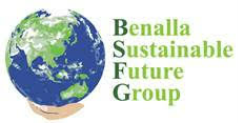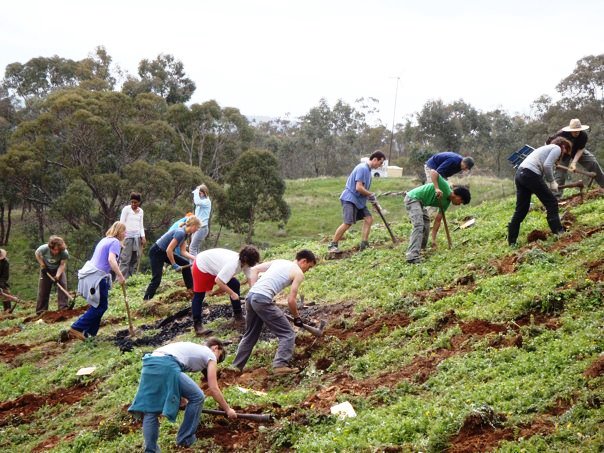Bio-diversity
|
Human beings depend for their sustenance, health, well-being and enjoyment of life on biodiversity.
Biodiversity has been described as the ‘web of life’, ‘the variety of living things’ or ‘the different plants, animals and micro-organisms, their genes and ecosystems of which they are a part’. Biodiversity encompasses every living thing that exists on our planet and the environment in which they live. From the smallest one-cell microbe to the enormous majesty of the blue whale. From the depths of the Pacific Ocean to peaks of our tallest mountains, biodiversity forms part of an intricate and interdependent web of life in which we are all a part. |
Australia is home to between 600,000 and 700,000 species, many of which are found nowhere else in the world. About 84 per cent of our plants, 83 per cent of our mammals, and 45 per cent of our birds are endemic — that is, they are only found in Australia. The marine environment is home to thousands of marine species, some of which are unique to Australia and all of which contribute to making Australia the most biodiversity-rich developed country in the world.
How can I help protect biodiversity*?
- Create a natural habitat in your backyard or on your farm.
- Look at plants that are native to the Benalla area and help create a backyard sanctuary for local birds and wildlife. Find out more about localindigenous plants by visiting the Indigenous Garden on Lake Benalla. Plants native to the Benalla area are included in the booklet Native Vegetation of the Goulburn Broken Riverine Plains. Check out Shepparton local government publication 'Gardening with local native plants' If you are interested in seed collection, Native Plant Seed in the Goulburn River Catchment (2004) a seed collection handbook, may be useful as might a visit to Euroa's Arboretum.
- If you are keen to enhance biodiversity on your farm, consider regenerative farming processes; protecting dams to maximise/retain biodiversity; becoming a member of your local land care group. Look out for regional publications such as 'The Ground Storey', which explores the role and need for fallen logs, branches, sticks, and leaves as habitat on rural properties. Follow up land care initiatives which help to improve biodiversity, including farm dam enhancements. Need inspiration? Watch 'Regenerative Farming' (below) or read 'Deb Hill's success in creating a thriving farm wetland'.
- Get rid of weeds. Perfectly harmless plants can turn into a noxious weed if they jump your back fence and head into bushland. Some weeds identified in Benalla include - Bridal Creeper, Horsetails (Equisetum species), Stinkwort, Sweet Briar, Chilean Needle Grass. Blackberry Rubus fruticosus. Serrated tussock is of concern in farming communities.
- A listing included on a recent Funding Round for Weeds and Pests (closes March 30 2021) listed:
St John’s wort Hypericum perforatum
Patterson’s curse Echium plantagineum
Silverleaf nightshade Solanum elaegnifolium
Chilean needle grass Nasella neesiana
African love grass Eragrostis curvula
Bathurst burr Xanthium spinosum
Caltrop Tribulus terrestris
Bridal creeper Asparagus declinatus
Gorse Ulex europaeus
Heliotrope Heliotropium europaeum
Wild tobacco Solanum mauritianum
Prunus species (wild fruit trees) - Find out more at https://www.benalla.vic.gov.au/Your-Property/Noxious-Weeds . Download Weeds of the Goulburn Broken (terrestrial and aquatic)
- Support local biodiversity initiatives including citizen science projects and bird watching recordkeeping. Examples in Benalla include the the Regent Honey Eater Project; Australian Platypus Conservancy monitoring project; Friends of Winton Wetlands (activities include an annual Spring Nest Box survey); the Turtles Australia project and biodiversity projects of local land care groups. Contact details for a number of local biodiversity related Environment and Conservation Action Groups are listed at https://www.benallaservices.com.au/subcategory/environment_and_conservation_action_groups
- Reduce, reuse and recycle. Look at ways to reduce the amount of rubbish that ends up in landfill and the waterways. Many things can now be recycled. For more information on what you can recycle in your local area go to Recycling Near You or Waste and recycling Benalla's many opportunity shops are renowned, near and far, as places to visit when people with a 'reduce, recycle and reuse' philosophy shop in Benalla! Read 'Moving towards a circular economy - more than just the 3 R's'.... how does this relate locally?
- Understand Benalla's composting bin system, or even start your own compost bin or worm farm. Organic matter like vegetable peelings are great for your garden. Start composting and you can reduce the need for chemicals and fertilizers in the garden and improve the health of your soil. Interested in Establishing your own worm farm? Check out the ABC's Gardening Australia links, including this Gardening Australia YouTube video.. Need a reminder about Green Bin rules? 'Be a Good Sort - rules for waste collection' on the council website could help.
- Consider wildlife when sourcing firewood - firewood meeting specified limits can be collected during autumn and spring from designated areas selected for reasons including availability of firewood, community safety and to protect sites of cultural and environment significance. Large hollow bearing trees, living and dead, are depended on by endangered bird species and many marsupials. For details of where, when and what firewood can be collected, visit www.ffm.vic.gov.au/firewood/firewood-collection-in-your-region
- Only put water down the drains. Oils and chemicals which may start at the kitchen sink end up in our waterways and seas and can affect animals and plants living in streams and rivers. Instead of using commercial cleaning chemicals try using white vinegar and bicarbonate of soda.
- Be a responsible pet and farm animal owner. If you can no longer keep your pets or farm animals do not release them into the wild. Don't flush pet fish down the toilet or put them into local streams. Make sure your cat is de-sexed and either keep it indoors or invest in an outdoor cat run — domestic cats can have a devastating effect on local wildlife. Our region also faces the devastating effects of wild dogs, wild pigs, and more.
- Be aware of biodiversity related issues affecting local waterways - Water Hyacinth and Salvinia are state prohibited weeds While they may look attractive on ornamental ponds, dams and aquariums,, they quickly spread to cover and block waterways, harming native plants and wildlife and reducing water quallity for farming and recreation. For information or to report suspicion, go to https://agriculture.vic.gov.au/biosecurity/weeds/state-prohibited-weeds. Benalla Lake is regularly drawn down to control the growth of the invasive Cabomba Weed and also the Mexican Lily.
- Remain aware of the impact of chemicals in pest/rodent controllers and agriculture on the food chain - eg: second generation poisons, often advertised as 'single dose only', are more powerful and aggressive than first generation poisons.
- Be bio-diversity conscious when you you travel. Tourist souvenirs and items you buy over the internet may be made from or contain derivatives of plants and animals. If you are bringing plants or animals into or out of Australia, go to Information for travellers and online shoppers beforehand. If you’re sailing while travelling, don't get too close to whales and dolphins.
- Be an informed seafood eater. Don’t eat threatened fish species. To find out species to avoid go to Find a Fish — FishNames.com.au (link is external) When you next order fish and chips, consider asking for a non-shark related species as at present there is no distinction between threatened and non-threatened 'flake'.
- Keep up to date - listen to informed speakers, including Bert Lobert from Our Strathbogie Forests, at BSFG meetings; check out webinars and podcasts on the internet; view biodiversity related film screenings and speakers at the Swanpool Environmental Film Festival sponsored by BSFG, Swanpool Landcare and Gecko CLaN in June each year. Attend film screenings during the year auspiced by BSFG and DELWP such as 2040 in early 2020 or screened at BSFG general meetings, such as Bob Brown Foundations' Forest Defenders screened on Thursday 25 March 2021 at the Uniting Church.
- Stay informed on policy to protect biodiversity across the three levels of government - federal, state and local. What is the Australian Government doing to protect biodiversity? About the Environment Protection and Biodiversity Conservation Act 1999 Biodiversity publications from the Federal Department of the Environment. For more information on biodiversity and related programs go to Biodiversity. Find out more about how you can help protect our biodiversity at environment.gov.au/biodiversity/biodiversity-month. For information on biodiversity measures in Victoria, go to: Victoria (link is external) Check out Benalla Rural City Council's website and follow developments and issues in the Benalla Ensign.
"Join in local biodiversity projects"
The Regent Honey Eater Project works to protect, restore and connect significant remnants of native habitat in the Lurg Hills near Benalla. In 'Why I go treeplanting', Chanaka reflects upon his experiences with the project.
|
Banner photograph - Deb Hill is pictured at the farm wetland she revived at Warrenbayne. Source - 'Country News', January 11 2022 page 4.
|
*Customized from a listing on the
http://environment.gov.au/biodiversity/biodiversity-month web page, last accessed March 20 2021 |
|
|
Benalla Sustainable Future Group acknowledges the traditional owners of the land on which we live, work and meet, the Taungerang, Yorta Yorta and Bpangerang people
of North East Victoria, and pay our respects to their elders past, present and emerging.
of North East Victoria, and pay our respects to their elders past, present and emerging.




